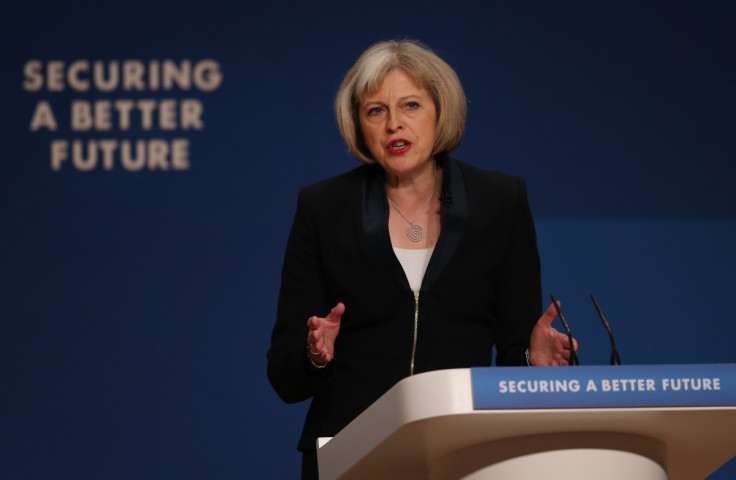Snooper's Charter: Theresa May claims new bill tackles 'tech-savvy' paedophiles in home office backtrack

Home secretary Theresa May has claimed that the new Investigatory Powers Bill, which gives extra rights to police and security forces, will not look at browser history and is aimed at tackling digital criminals.
"As the criminals move into the digital age, so do those who are searching out those criminals, and are assuring that we can stop them and disrupt them," May said on the Andrew Marr Show on Sunday (1 November).
May, who has backtracked on the controversial bill, said that the home office is now only planning to give police the power to see internet connection records rather than exact browser history. The Home Office and the Conservative government faced backlash over the bill, which will be laid out in front of Parliament this week.
"It's precisely this area of catching paedophiles and dealing with child abuse, it's precisely one of the reasons why we want to look at these internet connection records," May said. "If there are more intrusive requirements, then of course, warrants required for those, and part of the bill is about making sure that we have oversight arrangements in place for all of these powers."
Part of the debate around the Investigatory Powers Bill deals with the signing of these warrants. According to May, more than search warrant requests come in each year, and they are signed by the Tory secretary herself. It has been reported that the government has rejected calls to move that responsibility to senior judges.
The climbdown on the controversial bill has been met with some skepticism. The director of civil rights group Liberty, Shami Chakrabarti, told the Observer that the climbdown was a prime example of clever tactics from May.
"It's a traditional Home Office dance first to ask for the most outrageous, even impractical, powers, so that the smallest so-called 'concessions' seem more reasonable," Chakrabarti said.
"The frantic spinning distracts from the sleight of hand. Where is the judicial sign-off before our private communications can be collected, hacked and tapped? Where is the move back to targeted surveillance and away from the blanket collection of our private data?"
The bill still has to pass through parliament, and some say that the House of Lords, shortly following their rejection of the tax credit proposal, could give May a hard time over the 'snooper's' proposal as well.
© Copyright IBTimes 2025. All rights reserved.





















